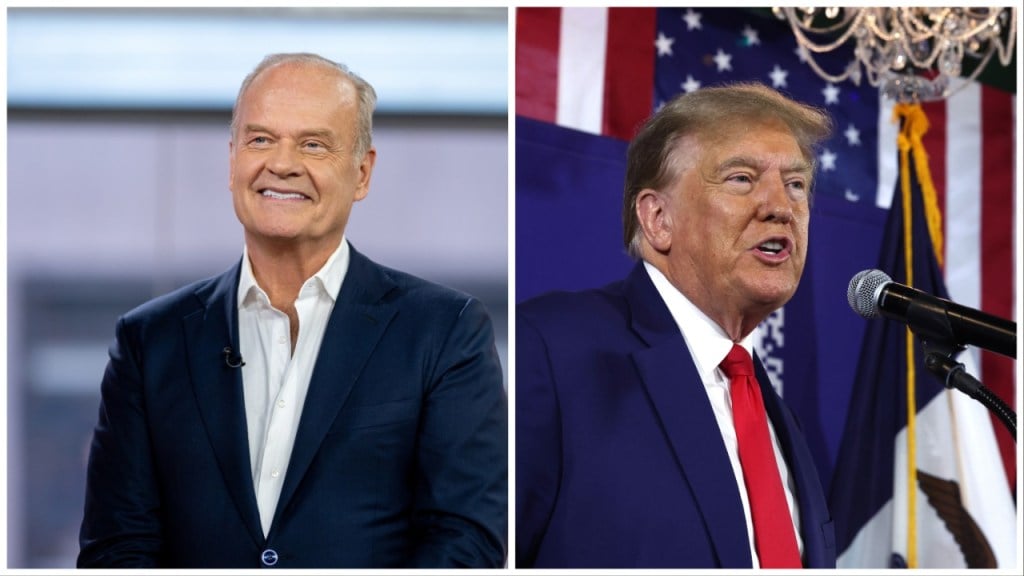Kelsey Grammer sounded curt this morning when he brusquely told a BBC Today program interviewer that he still supports Donald Trump but, according to his interviewer, this curtness doesn’t tell the full story.
Grammer’s interviewer Justin Webb said the Frasier star was “perfectly happy” to go on talking about his support for the former POTUS, “the Paramount+ PR team, less so.”
Grammer has previously expressed support for Trump – a relatively rare position for a TV and movie star to take – and he also used his BBC interview to back Roseanne Barr, another self-confessed Trump supporter.



I get that and I agree. I’m just differentiating between shows that were transformative for their viewers and ones that were “just” popular shows. Sometimes you get a crossover, like MASH, which was a very strong voice for post-Vietnam era America in which the idea of war and military service had begun to transform. We’ve lost ground on that one, of course, post-Reagan and especially after 9/11.
Like I said in another response, I see Schitt’s Creek as transformative in how it portrays LGBT persons and relationships by deliberately crafting a world in which prejudices (like racism and homophobia) do not exist. There are a number of shows that have over time led to the greater acceptance and normalization of the LGBT community, such as Queer Eye, but even a lot of those play to high camp tropes, and shows like Drag Race target the queer-and-ally communities more than being just a straight forward (sorry, couldn’t resist) sitcom.
In just my lifetime, we went from a world where Rock Hudson was closeted, Elton John and Boy George were flamboyant but not officially out, and where Nathan Lane worried that his epic role in The Birdcage would make people realize that he’s gay. There’s a great story behind that one. Before that you had the gay-coded villains like Vincent Price and comedians like Rip Taylor. Taylor never came out. Neither did Liberace.
I cite the Jeffersons similarly because the show came out as black Americans were moving from a civil rights struggle to a feeling of acceptance for and from the white American communities. The theme song Moving On Up embodied that social dynamic, while All in the Family lampooned the alternative vision of the white blue collar racist whose excuse was that he was just an “ordinary guy.”
I’d feel differently if Fraiser were to take a similar approach to mental health issues - normalizing and humanizing them, instead of playing them for gags. In my opinion, it was mostly about class dynamics with most of the humor involving the disconnect between the egotistical educated elite versus the real world. Contrast Fraiser’s relationship with his patients with that of the psychologist Sidney Friedman on MASH. By our standards today we could look at MASH and see homophobia and rampant sexism, but for its time it was humanizing, and Arbus’ character played into that narrative in most of his appearances.
Awards are awards, and at the end of the day they represent the opinions of the industry. I’m absolutely not saying they don’t matter. But people who watch a show like The Good Place (which explores absolutely fundamental issues of ethics and philosophy while still being a brilliant sitcom) have the power to change the way people think.